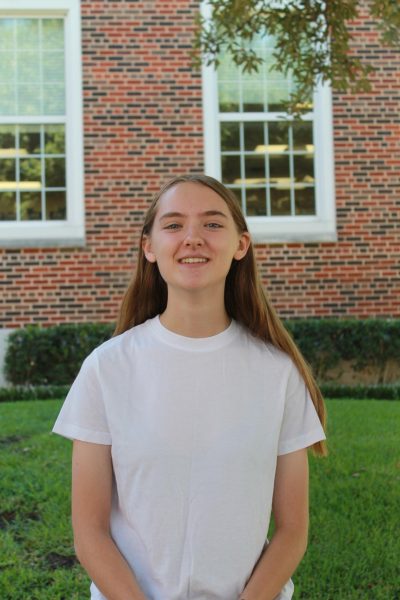Water Crisis Plagues Countries Worldwide
One-tenth of world’s population lacks clean water
The 52 fluid-ounce water bottle tips as freshman Natalie Koch drinks water at lunch. She had to rehydrate frequently as she participates in marching band. “It’s crazy to think we’re running out,” she said, on the topic of water conservation.
The sun beats down in a hot, sandy desert halfway across the world as a woman and her children hike for hours in the scalding heat to quench their thirst.
Treks like this are commonplace for the 783 million people on Earth who lack access to clean water. That’s one in 10 people on the planet. Of those people, 40% of them live in sub-Saharan Africa, which is over 320 million people who lack access to safe drinking water, according to the humanitarian organizations Global Citizen and World Vision.
The lack of usable water in these countries is often called water stress.
“On an average basis, we would say that those people have access to less than 5 gallons of safe, clean drinking water per day,” Thirst Project Ambassador Emma Chang said.
The Thirst Project is a water conservation organization based in California that focuses on installing water wells in Africa and bringing awareness to what they call the global water crisis.
“We’ve seen many children, like thousands of children in these water-scarce areas, have to walk at least 4 miles and over 8 hours a day to reach these water sources to begin with, only to collect dirty and unsanitary water,” Chang said.
One example of such a water-scarce place is Uganda. SMU Professor Andrew Quicksall, who specializes in water quality, worked in refugee camps in Uganda, and said that the job of water retrieval often prevented children from advancing their education.
“Once you’re out of primary age, if you don’t have means, you may or may not be in school and you have family chores,” he said. “That’s very traditional in that part of the world.”
Over 25 percent of Ugandan schoolchildren will drop out of school due to water related illnesses, and only 67 percent of the children that remain will finish primary school due to having to miss class to fetch water and care for sick parents and siblings, according to Water School, a nonprofit working to address these concerns.
But this issue isn’t just in Africa. Quicksall claims infrastructure has fallen to the bottom of the priority list in America. When water related infrastructure is not prioritized, water quality issues can ensue, like in the Flint, Michigan Water Crisis.
In 2014, the city began bottling and distributing water from the Flint River without filtrating it first. This resulted in drinking water that was contaminated with lead, which caused 12 deaths and over 80 related illnesses.
“That was clearly a water quality issue,” Quicksall said. “Had it been omnipresent in our minds as we were doing political decision-making to always keep our infrastructure first, including our water quality first, that never would have happened.”
Quicksall said all this happened in an effort to save money at the municipal government level.
“Things were tight, and we forgot to prioritize some of these basic human needs, which are, by definition, a human right,” Quicksall said. “And that’s in the developed world.”
In University Park, local authorities monitor access to water closely. University Park sources its water from Lake Grapevine, and in 2006, the lake receded 10 feet below the 530 feet cut-off indicating a low water level. The drop, which city conservation coordinator Jodie Ledat described as a wake-up call, forced water restrictions.
“Right now, our water levels at Lake Grapevine are okay,” Ledat said. “But no matter what our water levels are and whatever conservation methods need to be taken, we are always working to reduce the overconsumption of water.”
City public parks have sensors that prevent automatic irrigation after rainfall to avoid overwatering. In 2014, city law restricted lawn watering to only two days a week. The city also reaches out to the public through newsletters and social media encouraging water conservation.
On a larger, worldwide scale, Chang believes public awareness is a key portion of the fight against water scarcity.
“Honestly, the global water crisis is one of the world’s biggest sustainability and health issues, but it isn’t on the forefront of any social media page or news sites,” Chang said.
Quicksall said, however, this problem is too complex to solve easily.
“I’m a big believer in this. I think that if there was a new invention that we were going to invent to solve this problem we would already have it and it would already be installed,” Quicksall said. “The answer to this is ‘it’s not easy.’”

Steak bowl from Chipotle.
What is your dream career?
Lawyer.
What unconventional animal do you wish you could have as a pet?
An eagle.



